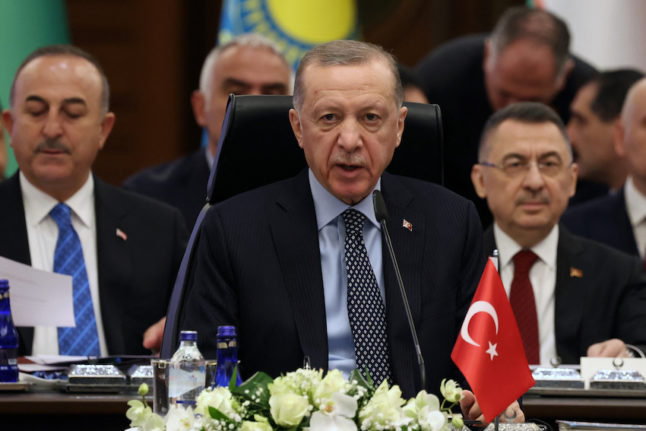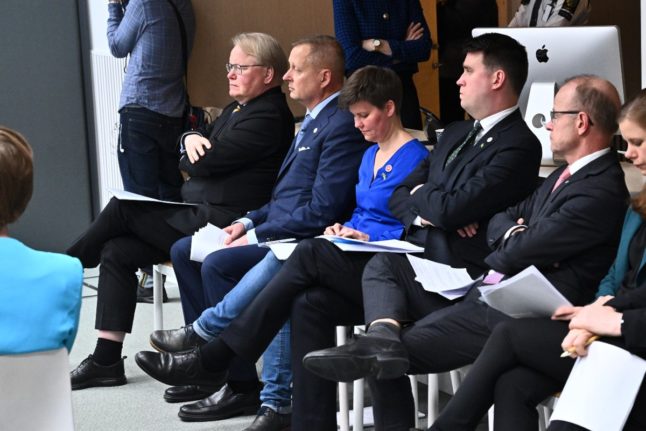Finland and its neighbour Sweden ended decades of military non-alignment and decided to join the US-led defence alliance in the wake of Russia’s invasion of Ukraine.
Their applications were accepted at a June NATO summit that signalled the Western world’s desire to stand up to Russia in the face of Europe’s gravest conflict since World War II.
But that summit was only a statement of intent. The bids still needed to be ratified by all 30 of the alliance members’
parliaments — a process that got hung up once it reached the turn of Turkey and Hungary.
Finnish President Sauli Niinistö and Erdoğan are scheduled to hold talks and have a working dinner before meeting reporters later Friday.
“We will do our part, we will keep the promise we gave,” Erdogan said when asked about Finland’s application this week.
The Turkish leader has accused the Nordic neighbours of breaking the terms of a separate deal they reached in June 2022 under which Turkey agreed to approve the bids.
Turkey has sought the extradition of dozens of Kurdish and other suspects it accuses of ties to outlawed militants and a failed 2016 coup attempt.
Erdoğan’s demands became more urgent as he neared a May election in which he will need a strong turnout from his nationalist supporters to extend his two-decade rule.
The Turkish leader voiced particular displeasure with Sweden — a country with a larger Kurdish diaspora and a longer history of disputes with Ankara. Erdoğan announced in January that he was happy with the progress Finland was making and was ready to put its ratification before parliament.
NATO had hoped to formally welcome both countries at another summit planned for July in the Lithuanian capital Vilnius.
Swedish delay
Finland and Sweden had initially resisted the idea of breaking up their bids. But Swedish Prime Minister Ulf Kristersson acknowledged on Tuesday that the likelihood of Finland joining NATO on its own had “increased”.
Finnish President Niinistö then said on Wednesday that he had been invited to Turkey by Erdoğan to personally “receive the answer when they announce the decision” on NATO.
Analysts agree that Erdoğan is all but certain to announce that he will put Finland’s ratification before parliament.
“The big question is whether this will happen before or after Turkey’s own elections,” Finnish Institute of International Affairs research fellow Henri Vanhanen told AFP.
Turkey’s parliament is expected to close about one month before the May 14 vote.
“I would be inclined to believe that it is possible that it will happen before the Turkish elections,” Vanhanen said. “Of course, it is quite clear that presidential visits of this level are not usually organised unless there is some concrete progress expected or made.”
The talks in Ankara put more pressure on Hungary’s parliament to end its own ratification delays. Hungarian Prime Minister Viktor Orban enjoys a close relationship with Russian President Vladimir Putin and has numerous disputes with both NATO and the European Union.
The Hungarian parliament began debating the two NATO bids at the beginning of the month. But Orban’s ruling party said on Tuesday it will not be sitting next week because of a breakdown of separate negotiations with Brussels over EU funding.



 Please whitelist us to continue reading.
Please whitelist us to continue reading.
Member comments